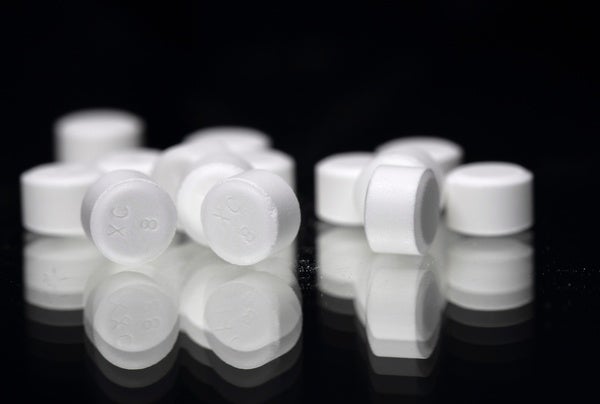 |
| January 28, 2022 |
 |
| |
| |
| |
| Sponsor Content Provided by Macmillan Audio Listen to the EATING TO EXTINCTION audiobook Globalization has dramatically homogenized what we eat. Of the six thousand different plants once consumed by humans, only nine remain major staples today. Food journalist Dan Saladino travels the world to document our most at-risk foods before it's too late. | | | | |
| |
| |
| |
| Health Care When Should You Get a COVID Test? It depends, but vaccinated people should generally wait five days after exposure before taking an antigen test. Here's why | | | | |
| |
| |
| |
| |
| |
FROM THE STORE
 | | | |
| |
BRING SCIENCE HOME
 | | Dancing Droplets |  How can you make drops of food coloring and water move around on their own--almost as if they were dancing? Try out this new physics discovery yourself and learn the secrets behind their mysterious movement! Credit: George Retseck | Have you ever watched raindrops on your window as they move and run down the glass? It is fascinating to observe how some of them sit there by themselves whereas others combine to build a larger drop. Have you ever wondered what makes them move and behave in different ways? Controlling and influencing liquids spreading on surfaces, known as "wetting," is actually important for many things—beyond simply watching the rain. For some purposes, you might want a surface to repel a liquid; just think of your water-repellent jacket as one example. Other times you need the liquid to spread evenly across a surface, such as paint on a wall. But can you predict what a drop of water will do on a specific surface? Will it spread or form a droplet? It is even more complex if the liquid is not only water but a mixture of different components. Sometimes the outcome can be very unexpected, and even fascinating to watch. Try this activity and see for yourself! | |  | |
LATEST ISSUES
 |
| |
| Questions? Comments?  | |
| Download the Scientific American App |
| |
| |




